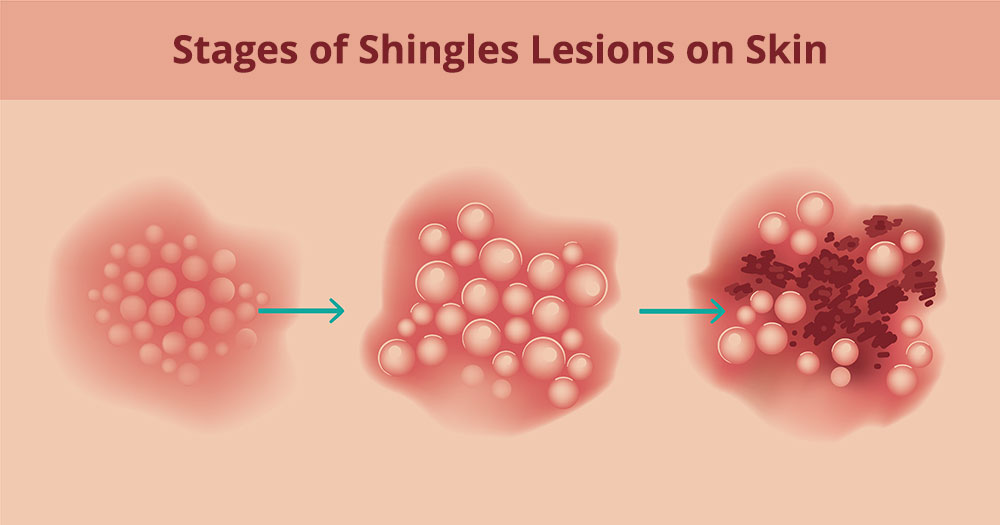Shingles
What are shingles?
Shingles (herpes zoster) is caused by a reactivation of the varicella-zoster virus—the same virus that causes chickenpox. Anyone who has had chickenpox, or who has been vaccinated against chickenpox, carries the virus and may later develop shingles..
After the initial infection, the virus does not leave the body. Instead, it stays dormant in nerve roots and can “wake up” years later. Reactivation is often linked to changes in the immune system—such as stress, illness, aging, or weakened immunity. Shingles most often occurs in adults over age 50.

Do I have shingles?
Shingles usually begins with pain, tingling, or sensitivity in a specific area of skin—sometimes described as feeling like a pulled muscle—before a rash develops. Within days, red patches appear and progress into clusters of fluid-filled blisters.
The rash:
- Typically affects the chest, abdomen, or face, but can occur anywhere on the body.
- Follows nerve pathways, appearing in a stripe or band.
- Almost always appears on just one side of the body (unilateral).
Is shingles contagious?
Yes, but only to people who have never had chickenpox or the chickenpox vaccine. If they are exposed, they may develop chickenpox—not shingles.
Shingles spreads through direct contact with the rash or blister fluid, not through coughing or sneezing. A person is contagious until the rash crusts over. During this time, avoid close contact with:
- Pregnant women
- Infants
- People with weakened immune systems
Is shingles dangerous?
Most healthy adults recover fully from shingles. However, older adults and people with weakened immune systems may have more severe or widespread symptoms.
What is post-herpetic neuralgia?
One of the most common complications of shingles is post-herpetic neuralgia (PHN)—nerve pain that persists weeks, months, or even years after the rash clears. Pain can range from mild tingling to severe, chronic discomfort.
While there are treatments for PHN, the best way to prevent it is vaccination.
Is there a shingles vaccine?
Yes. The Shingrix vaccine is the preferred option and is highly effective at preventing shingles and PHN. It is recommended for adults aged 50 and older—even if you’ve had shingles or the older Zostavax vaccine.
- Shingrix is given in two doses, 2–6 months apart.
- It is available through primary care providers and many pharmacies.
Is there treatment for Shingles?
If started early, antiviral medications such as valacyclovir, acyclovir, or famciclovir can:
- Shorten the duration of the outbreak
- Reduce pain and discomfort
- Lower the risk of post-herpetic neuralgia
Other treatments may include pain medications, soothing creams, or corticosteroids depending on your symptoms. The earlier treatment begins, the more effective it is.
Shingles care in Connecticut
At Dermatology Physicians of Connecticut, our board-certified dermatologists are among the top-rated specialists in the state for diagnosing and treating shingles.
With offices in Norwalk, Shelton, Oxford, Stamford, Branford, and Hamden, we provide expert, personalized care for shingles and related complications. Whether you need early diagnosis, antiviral treatment, or management of long-term nerve pain, our dermatology team is here to help restore your comfort and health.


